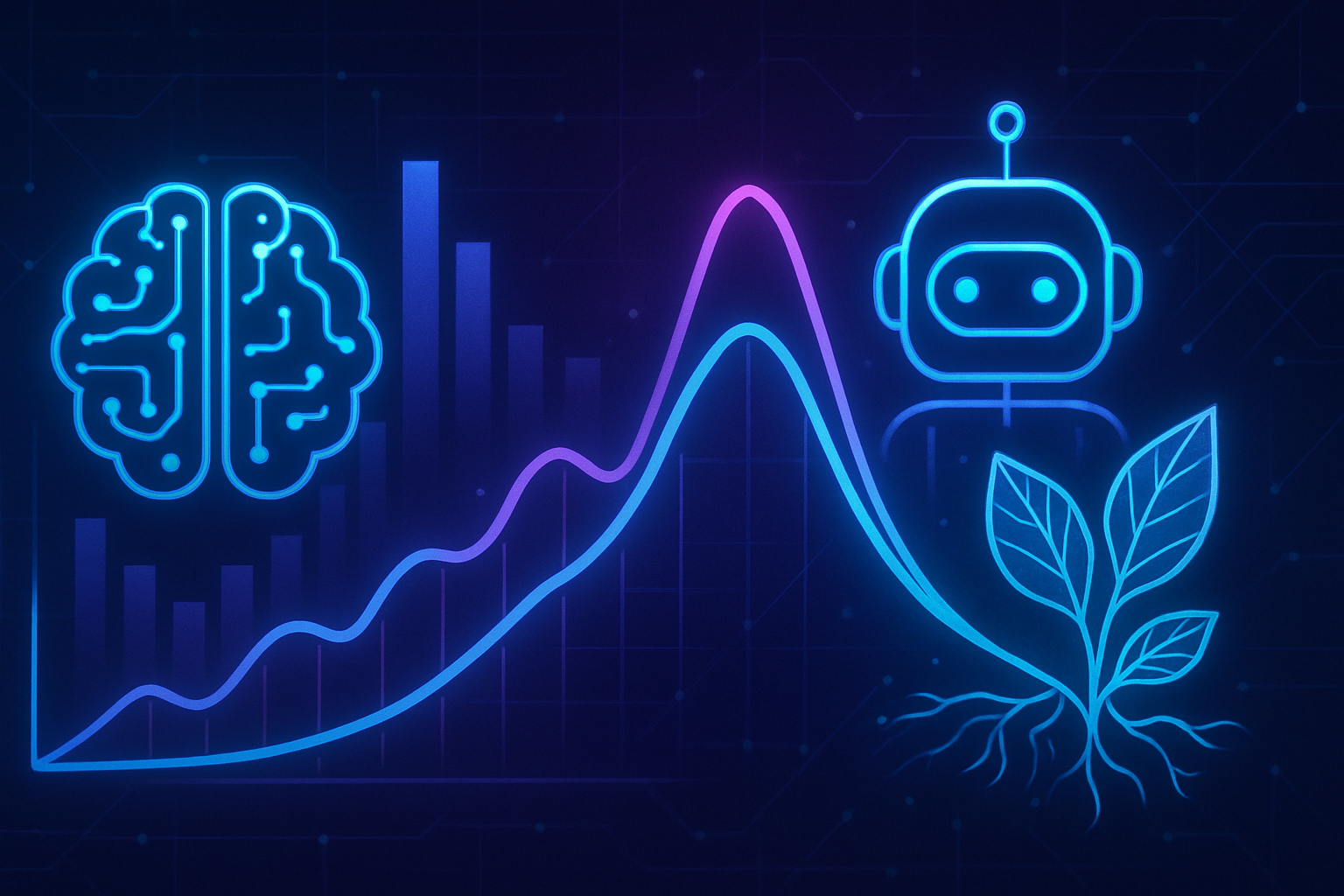The analysis of the conversion performance of traffic generated by artificial intelligence compared to that of organic traffic reveals crucial issues. *The efficiency of AI in lead generation* raises fascinating questions. What are the real differences in terms of conversion rates and traffic quality?
The figures testify to a complex reality: the conversion rate of LLM traffic can vary greatly depending on the context. *Experts are questioning the true qualification* of users redirected by tools like ChatGPT or Perplexity. A thorough study is essential to better understand the impact of this new traffic channel.
The understanding of *dynamics between these two traffic sources* could transform marketing strategies and optimize resource allocation.
Analysis of Conversion Performance
A recent study by the agency Amsive questions the quality of traffic generated by artificial intelligence tools such as ChatGPT and Perplexity. These devices are often described as generators of more qualified traffic, but the results of the analysis reveal notable nuances. The agency scrutinized six months of data from 54 sites, both B2B and B2C, to assess conversion rates.
Comparison between AI Traffic and Organic Traffic
The results indicate that traffic from AI does not systematically show superior conversion performance compared to organic traffic. According to the study, the average conversion rate of traffic generated by LLMs is 4.87%, slightly above the 4.60% for organic traffic. However, this difference is not considered by researchers, reinforcing the idea that these two types of traffic must be evaluated with caution.
Variability of Results by Context
A detailed analysis reveals that results vary significantly from site to site. Among the 54 sites studied, about 56% had a higher conversion rate with AI traffic, while 41% reported lower performance. This disparity underscores the contextual influence on results, prompting reflection on content optimization strategy.
Impacts Based on Business Model
The research also considered the business model, whether B2B or B2C. The findings show that, on B2B sites, AI traffic tends to exhibit slightly higher conversion rates. This observation could encourage some businesses to reevaluate their approach to artificial intelligence tools, although no definitive trend has been established.
Prevalence of Organic Traffic
Another key finding arises from the analysis of sessions. Traffic from AIs accounts for less than 1% of total traffic on the majority of sites examined. For about 90% of sites, sessions from LLMs contribute to less than 0.6% of their total traffic. In contrast, organic search remains predominant, representing about 32% of the total sessions.
Consequences for Optimization Strategies
The agency Amsive warns against prematurely adjusting content strategies to attract AI traffic. The low volume of this traffic indicates a priority to focus on organic search, which continues to dominate in terms of efficiency and volume. Unless there is a significant increase in sessions generated by AI, businesses should concentrate their efforts on more effective organic channels.
Sustainability of Digital Strategies
The results prompt experts to rethink their digital strategies based on traffic type. The importance of organic traffic is undisputed, while the impact of LLMs on sales and conversions remains marginal. Ultimately, this analysis provides valuable insight into the challenges and opportunities posed by integrating artificial intelligence into modern marketing strategies.
Frequently Asked Questions
Does traffic generated by artificial intelligence have a better conversion rate than organic traffic?
According to a study conducted by Amsive, traffic from artificial intelligence tools does not systematically show a higher conversion rate than organic traffic. Results vary depending on specific sites and contexts.
What factors influence the conversion performance of traffic generated by artificial intelligence?
Conversion performance depends on various factors, including the type of site (B2B or B2C), the content offered, and the volume of traffic. Each site may exhibit different results depending on its industry.
How can I know if LLM (Large Language Model) traffic is beneficial for my site?
It is essential to analyze your site’s conversion data to determine if traffic from LLMs adds value. Based on statistics, less than 1% of total traffic generally comes from AIs, which may limit their impact.
Why should I not optimize my content solely for AI-generated traffic?
Given that traffic from AIs represents a minimal proportion of total traffic (less than 1% for the majority of sites), it would be premature to direct optimization efforts towards this channel. Organic search remains dominant and much more effective in terms of traffic and conversions.
Are there types of content that perform better with LLM traffic?
Results vary, but content targeting specific queries and providing detailed answers may potentially perform better for users coming from LLMs. However, these results are not guaranteed and still depend on the context.
What proportion of total traffic comes from artificial intelligence tools?
In the Amsive study, it was revealed that for 90% of the sites surveyed, traffic from artificial intelligence did not exceed 0.6% of total sessions, highlighting the low contribution of this channel compared to organic traffic.
Can artificial intelligence tools help improve organic traffic to my site?
While artificial intelligence tools are not inherently more qualified, they can be used to support SEO efforts by generating content ideas or analyzing performance. However, this support should not replace optimization strategies for organic traffic.
Is it still worthwhile to track the performance of AI-generated traffic on my site?
Yes, it is relevant to track this type of traffic despite its low proportion, as it can provide insights into emerging trends and user behavior, allowing for adjustments to marketing strategies if necessary.






